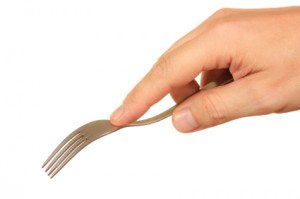The Five Essential Manners Your Child Needs to Succeed
 I had the honor of being a guest on the 24/7 Moms webcast with the founder Trisha Novotny. I talked about the five essential manners you child needs to succeed.
I had the honor of being a guest on the 24/7 Moms webcast with the founder Trisha Novotny. I talked about the five essential manners you child needs to succeed.
Teaching manners to kids can be challenging. You need to reinforce and remind your child what proper manners are. Telling children once not to chew with their mouth open will not change their behavior, you must consistently remind them and praise them when they use good manners. Good manners also must be role-modeled by parents because kids watch our every move. You can’t expect your child to have good manners if you don’t practice them.
There are many important manners kids need to learn, but this post will focus on five essential manners.
1. Good table manners.
I could focus the whole blog on just table manners, but here are a few important ones to teach your children.
- Chew with your mouth closed and chew quietly.
- Wait to eat until everyone has been served.
- Put your napkin on your lap and to use it to wipe their mouth but never to blow their nose.

- Don’t eat food with your fingers. Once your children are old enough to use utensils teach them how to hold their utensils properly. The photo at right shows how to hold your utensils when cutting meat.
2. Introduce yourself and others.
A child who introduces himself makes a good impression on others, whereas one who does not is overlooked. Teach your child that when at a party or meeting new neighbors to say something like “Hi, my name is Mary, I live at the end of the block.”
Explain to your child that when introducing two people they say the name first of the older person or person with a title and say the name of the younger person or person without a title second. Example: “Coach Ball this is my friend Mary Smith.”
3. Conversation skills.
It’s important children learn how to carry on a conversation and not just a monologue. Here are a few things to teach them.
- Listen, don’t interrupt
- Don’t just wait for your turn to talk, really listen to what the other person is saying.
- Teach them to ask questions that show a sincere interest in the other person.
- Spend time at dinner having conversations. Don’t allow your child to use technology at the table. If you catch them texting try this rule a Twitter follower shared, “if you text you have to share it.” My follower said “it stops texts dead.”
As a parent, reinforce listening skills by giving your child your full attention when he or she is talking. Put that smart phone down. Be a good role model.
4. Write thank you notes.
Handwritten thank you notes are just as important today as ever and will help your child stand out and be appreciated.
One of my corporate clients, a large CPA firm, said that they won’t offer a job to any candidate who does not send a thank you note after the interview.
The hard part about thank you notes is kids need to be reminded and prompted to write them. And, they need help, especially when they are little, to learn what to say.
A few note pointers to help:
- Have a supply of note cards on hand. Your child will be more likely to write one if it’s handy.
- Send the card within 48 hours so that feelings are still fresh about the gift, party or favor
- Follow this format for thank you notes:
- Say thank you for the gift or whatever it is you received.
- Let the giver know what you plan to do with it or have done with it.
- Tell the person how much you like the gift or why you are so happy with it
- If your child didn’t like the gift or received a duplicate have him or her say something about how thoughtful it was of the giver to give them a gift.
5. Be nice and courteous to others.
This is the most important manner and even if your child’s manners are not perfect if he or she is a nice, courteous child he or she will do well in life.
- Teach them to respect differences, that every family does things differently. Explain that there is no right or wrong way of doing things.
- Talk about the importance of being kind to others and not intentionally hurting people.
- Teach them to say “please” and “thank you”. It’s amazing what a difference it makes in your perception of a child who says “please” and “thank you”.
- Look for ways to help others whether it’s holding the door open for someone, helping someone with heavy bags, visiting a sick friend in the hospital or sticking up for a child who’s being picked on.
- Teach them to look for the positive. For example, explain that even if they didn’t like the meal they were served at a friend’s house to find something to comment on positively such as the dessert or the effort put into the meal.
Those are five essential manners your child should have. Remember, manners start at home so it’s important to expect good manners at home as well as out and about. If you reinforce and role-model good manners and correct bad manners your child will learn to be a well mannered child and he or she will have more success socially and professionally.
Need some help teaching manners to your child? We offer regular etiquette and social skills classes.
Please note: We have a new method of delivering blog posts to your inbox. If you have previously received these blog posts through Feedburner, please subscribe to receive these blog posts through the form below and unsubscribe to the posts you receive through Feedburner.
6 responses to “The Five Essential Manners Your Child Needs to Succeed”
-
I definitely see irony in this article. You wrote, “Teach them to respect differences, that every family does things differently. Explain that there is no right or wrong way of doing things” and then you wrote an entire article called “Are we teaching children to be disrespectful” to counter the entire claim. You even had the chutzpah to contend that children addressing adults by first names causes insolence and disrespect, even if the adults actually prefer it.
-
CaseoftheMondays, I’m sorry I missed your comment. Thank you for taking the time to share your thoughts. You’re right, it does seem ironic that I say to respect differences and then state that children should address adults by an honorific and last name. I’m a stickler for it because I feel it’s a sign of respect for children to address adults by their last name, or at least an honorific and their first name – Ms. Jane. If an adult insists on being called by their first name then I suppose the child should honor that. But I think it’s easier for kids to be consistent by addressing all adults by their last names.
If a child went to the South, the East Coast or many other countries and addressed an adult by their first name many adults would probably be taken aback by the informality. The West Coast is very casual and informal, but the rest of the world isn’t as informal as we are.
-
I AGREE WITH THESE FIVE MANNERS TO BEING A GOOD CHILD OR STUDENT WE WILL ACCEPT THESE RULE IN OUR DAY TO DAY LIFE
THANK YOU.
-
I’m a southern lady. When I was growing up we weren’t allowed to address adults by their first name. If they were very close family friends I was allowed to call them aunt or uncle and their first name. Otherwise it was Miss, Mrs. or Mr. and their last name. I was raised to respect my elders, to do things like: if I was seated and an adult came into the room, I was to give my seat to the adult, especially if it was an elderly person or a lady. I was never to interrupt an adult when they were talking and only allowed to speak when they had finished or if I was spoken to. There was a lot of things like that and I was expected to remember all of them at an early age. If I didn’t, I was graciously told about it at the time and then reminded of it when I was alone with my parents. I’ve never forgotten how I was raised and I’m thankful for it.
-
It sounds like you have lovely manners, based on respect, Sondra. Good for you for continuing to practice them.

 Sign up for the award-winning Clise Etiquette newsletter and receive a free chapter of Arden's book Spinach in Your Boss's Teeth.
Sign up for the award-winning Clise Etiquette newsletter and receive a free chapter of Arden's book Spinach in Your Boss's Teeth.
Leave a Comment